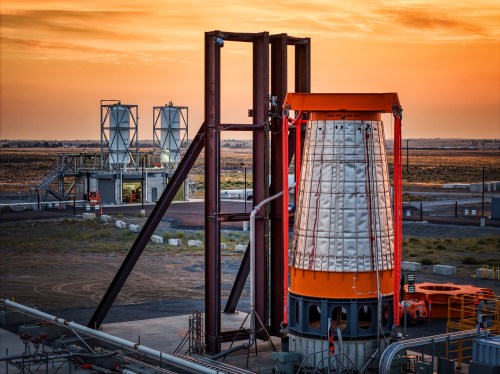Stoke Space announced a major capital raise on Wednesday. At first glance, it might seem like just another bet on the commercial launch market, but the details reveal a different story.
Led by billionaire Thomas Tull’s U.S. Innovative Technology, a fund that explicitly invests in national security technologies, this five hundred ten million dollar Series D round highlights a significant shift in the launch industry. The old assumption was that the winning launch companies would be those that captured the largest share of commercial payloads.
While demand still exists on the commercial side from private constellation developers and for emerging uses like in-space manufacturing or lunar payloads, the industry’s center of gravity has decisively shifted toward defense.
Just a few years ago, space startups sold investors on visions of a rapidly expanding commercial market for weather monitoring, broadband, and remote-sensing satellites. For example, Astra told investors in its 2021 SPAC presentation that it would eventually launch hundreds of rockets per year to serve a growing small satellite market. Relativity Space pitched a 3D printing revolution to make rockets cheap enough to unlock large commercial demand.
However, there are only so many commercial payloads to fly, and only one company, SpaceX, has managed to launch them cheaply and reliably at scale. Defense, meanwhile, is on an opposite trajectory.
Geopolitical shifts, such as Russia’s war against Ukraine and growing space competition from China, have created new tailwinds. The Pentagon’s new Golden Dome initiative, a multi-billion-dollar project to create a layered missile defense shield over the continental United States, has flooded the aerospace ecosystem with lucrative new opportunities.
Meanwhile, programs like the Space Force’s National Security Space Launch and the Space Development Agency’s missile-defense satellite constellation promise years of predictable, high-value contracts.
Launch startups have noticed this shift. Their language, investors, and business models have realigned toward a single primary buyer: the U.S. government.
In a press release, Stoke Space acknowledged this reality, stating the new funding would strengthen capability across the U.S. space industrial base. Support from other new investors, like Washington Harbour Partners and General Innovation Capital Partners, further underscores Stoke’s importance to national security and the U.S. industrial base.
Stoke’s recent achievements highlight this new focus. In March, it was selected as one of the launch providers for the National Security Space Launch Phase 3 Lane 1 program, allowing it to compete for up to five point six billion dollars in launch contracts over the next decade.
Other recent deals tell a similar story. Firefly’s recent eight hundred fifty-five million dollar acquisition of SciTec was framed by its CEO as a move that enhanced the company’s ability to support a growing number of defense missions. Relativity’s new owner, former Google CEO Eric Schmidt, recently warned lawmakers that if China achieves superintelligence first, it would change the global balance of power in unpredictable ways.
While his remarks were not specifically about launch, they summarize the broader sentiment across the space industry: America cannot afford to lose in strategic domains like space and artificial intelligence.
In that context, U.S. Innovative Technology is an obvious lead investor for this new funding round. Thomas Tull launched the fund in 2023 to finance technologies relevant to the national interest.
Its past investments are wide-ranging but related to national resilience, including defense startup Shield AI and Gecko Robotics. Stoke Space’s inclusion in that portfolio cements the new reality that space investment now sits squarely at the intersection of venture capital and defense budgets.

